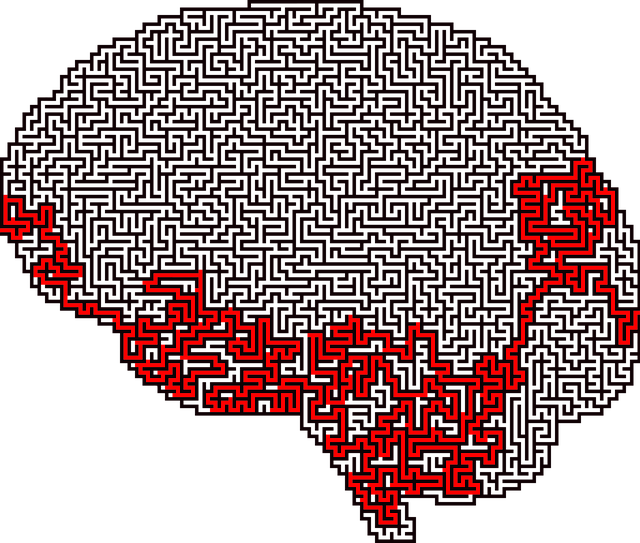Mental health professionals play a vital role in navigating risks associated with therapy sessions for young children with developmental disabilities like autism or Down syndrome, requiring specialized attention due to unique challenges including emotional vulnerabilities, sensory sensitivities, and communication barriers. Effective risk management involves cultural competency training, conflict resolution techniques, and anxiety relief strategies, fostering secure and supportive environments that promote open communication and positive outcomes. By integrating comprehensive risk assessment tools, regular supervision, peer consultation, and continuous training in trauma-informed care practices, therapists can proactively identify and address potential hazards, enhancing therapeutic outcomes for these vulnerable young clients while also safeguarding their own well-being.
“In the realm of mental health care, particularly when treating young children with developmental disabilities, risk management planning is paramount. This article delves into essential strategies for navigating potential hazards within therapy sessions. We explore ‘Understanding Risk in Therapy Sessions for Young Children with Developmental Disabilities’ and ‘Identifying Potential Hazards’ that impact vulnerable populations. Furthermore, we provide a comprehensive guide on ‘Developing a Risk Management Plan’ and offer practical ‘Implementing Strategies’ to enhance therapeutic outcomes while minimizing risks.”
- Understanding Risk in Therapy Sessions for Young Children with Developmental Disabilities
- Identifying Potential Hazards and Their Impact on Vulnerable Populations
- Developing a Comprehensive Risk Management Plan for Mental Health Professionals
- Implementing Strategies to Minimize Risks and Enhance Therapeutic Outcomes
Understanding Risk in Therapy Sessions for Young Children with Developmental Disabilities

Understanding risk in therapy sessions for young children with developmental disabilities is a nuanced and critical aspect of mental health practice. These children often present unique challenges due to their conditions, such as autism spectrum disorder or Down syndrome. Risks can manifest as emotional vulnerabilities, sensory sensitivities, or communication barriers that require specialized attention during therapeutic interventions. Mental health professionals must be adept at identifying potential hazards and implementing strategies tailored to each child’s needs.
Effective risk management involves a multifaceted approach. Healthcare provider cultural competency training is essential to navigate the diverse backgrounds of these children and their families. Techniques for conflict resolution and anxiety relief are valuable tools in creating a safe and supportive environment, fostering open communication, and facilitating positive therapeutic outcomes. By combining cultural sensitivity with evidence-based practices, mental health professionals can ensure that therapy sessions are not only effective but also secure and empowering for young children with developmental disabilities.
Identifying Potential Hazards and Their Impact on Vulnerable Populations

Mental health professionals must be vigilant in identifying potential hazards that can significantly impact their young clients with developmental disabilities. These vulnerabilities often make them more susceptible to various risks, from emotional trauma to social isolation. For instance, therapy sessions for young children with special needs may expose them to stressful situations or intense emotions, especially if the therapeutic environment is not carefully curated. Unaddressed stressors can lead to exacerbation of existing conditions, hindering their progress and well-being.
One of the critical aspects of risk management is recognizing that each individual’s response to therapy is unique. Some may require specialized support for anxiety relief or crisis intervention guidance due to their specific disabilities. By proactively identifying these hazards and implementing tailored strategies, professionals can foster a positive thinking mindset in their young charges, enhancing their resilience and overall mental health outcomes.
Developing a Comprehensive Risk Management Plan for Mental Health Professionals

In today’s demanding landscape, mental health professionals must prioritise comprehensive risk management planning to ensure optimal patient care. This involves a multi-faceted approach that incorporates stress management workshops and self-care practices tailored to their unique needs. By fostering a culture of resilience within the profession, therapists can better navigate challenges related to therapy for young children with developmental disabilities.
A robust risk management plan should include strategies for identifying and mitigating potential risks, from workload management to personal boundaries. Mental health professionals should engage in regular self-reflection, seeking feedback from colleagues and supervisors. This proactive approach enables them to identify early warning signs of burnout or stress and implement timely interventions, ultimately enhancing their ability to provide effective therapy for young children with developmental disabilities while maintaining well-being.
Implementing Strategies to Minimize Risks and Enhance Therapeutic Outcomes

Implementing effective risk management strategies is paramount for mental health professionals to ensure optimal therapeutic outcomes, especially when working with vulnerable populations such as young children with developmental disabilities. By integrating comprehensive risk assessment tools, therapists can proactively identify potential hazards and tailor interventions accordingly. This involves a multifaceted approach that encompasses regular supervision, peer consultation, and ongoing training in trauma-informed care practices.
Through meticulous risk assessments, professionals can anticipate and mitigate challenges unique to each client’s presentation, including past traumas or stressors. By prioritizing stress management techniques and fostering safe therapeutic environments, mental health practitioners enhance their ability to support young children in processing emotions, building resilience, and achieving meaningful recovery. Such proactive measures not only safeguard the well-being of both therapist and client but also contribute to more successful therapy outcomes, especially within the sensitive context of childhood mental health care.
Risk management planning is an indispensable tool for mental health professionals working with young children having developmental disabilities. By understanding the unique risks within therapy sessions, identifying potential hazards, and implementing comprehensive strategies, practitioners can create a safe and supportive environment. This approach not only minimizes risks but also enhances therapeutic outcomes, ensuring the well-being of vulnerable populations. Incorporating these measures is essential in the pursuit of effective and ethical therapy for young children with developmental disabilities.










